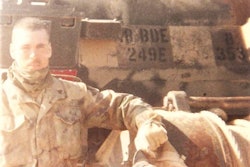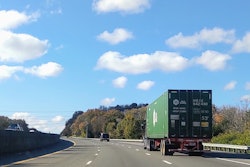The consequences of dishonesty when it comes to the information provided for an insurance policy can be devastating.
Recently a gentleman from Indiana contacted me. He said he was starting his own trucking company and would like a quote for insurance. He had prior experience owning a trucking company, and was looking to re-enter the industry. We discussed trucking in general, and it was readily apparent his prior experience had been significant. We even exchanged a few truck driver stories and our individual experiences of the negative impact of FMCSA’s ever-expanding regulations on trucking.
All in all, a very good conversation between two old-school truck owners.
We began and completed his application together. He provided information on his drivers, trucks and trailers, along with his specific operational details. It was looking very promising. I was optimistic for him and believed he would receive quotes that would be on the lower end of premium rates.
I submitted his application to several insurance companies, as I typically do, to see which insurance carrier would provide him the lowest premium for the amount of coverage he was seeking. To my surprise every single one of these insurance carriers “declined” (a polite word for refused) to offer an insurance quote.

I reviewed all the information. No drivers had any tickets or violations, there was only one insurance claim from the gentleman’s past (not uncommon for most of us), and the trucks and trailers were all on the newer side.
I wanted to learn more and see if there was something I did incorrectly that caused all the insurance companies to decline to quote this gentleman. I contacted one of the insurance carriers I had submitted his application to. They informed me that his previous FMCSA operating authority had been revoked by the FMCSA because his insurance had been canceled by the insurance company.
That’s when I learned, as Paul Harvey used to say, the rest of the story. Everything the gentleman told me about his trucking past was true. But it was what he didn’t tell me that caused all the insurance carriers to decline to quote.
[Related: Don't over-insure your trucking business: 3 coverages you likely don't need]
I called him and asked if this was a mistake or if he knew his previous FMCSA operating authority had been revoked because his insurance had been canceled. That’s when he disclosed just why he was re-entering the trucking industry with a new authority. Remember that one insurance claim? Well, that claim was for an accident in which one of his trucks was at fault, and neither the truck nor driver involved in that accident was listed on his commercial auto policy. The owner had only listed one of his many trucks on that policy and had purchased a personal auto policy for his additional trucks, in an effort to save money. As a result, he was not able to purchase any insurance to get his previous federal operating authority reinstated.
He believed he could simply start a new company and be able to continue his trucking business. That is not the case. Even worse, he will most likely never be able to own a trucking company or operate with his own authority again.
If you are ever tempted to, or if anyone (a business partner, friend or even an insurance agent) suggests you should, mislead your insurance company, don’t do it! Here are some of the most common deceptions (lies, basically) I have encountered:
- Not including all vehicles owned or operated on the policy (this includes trucks and trailers).
- Not including all drivers on the policy.
- Utilizing someone else’s address as a garaging address.
- Utilizing a P.O. Box address as the physical location of the business.
While these deceptions might reduce your premium, they are also valid reasons for an insurance company to cancel your insurance policy. Once that happens, it follows you like a bad smell after hitting a skunk. No matter how hard you try you just can’t get rid of it and nobody wants to park next to you in the truck stop. That’s basically how insurance companies deal with dishonest truck owners.
[Related: 'Bobtail insurance' 101]










